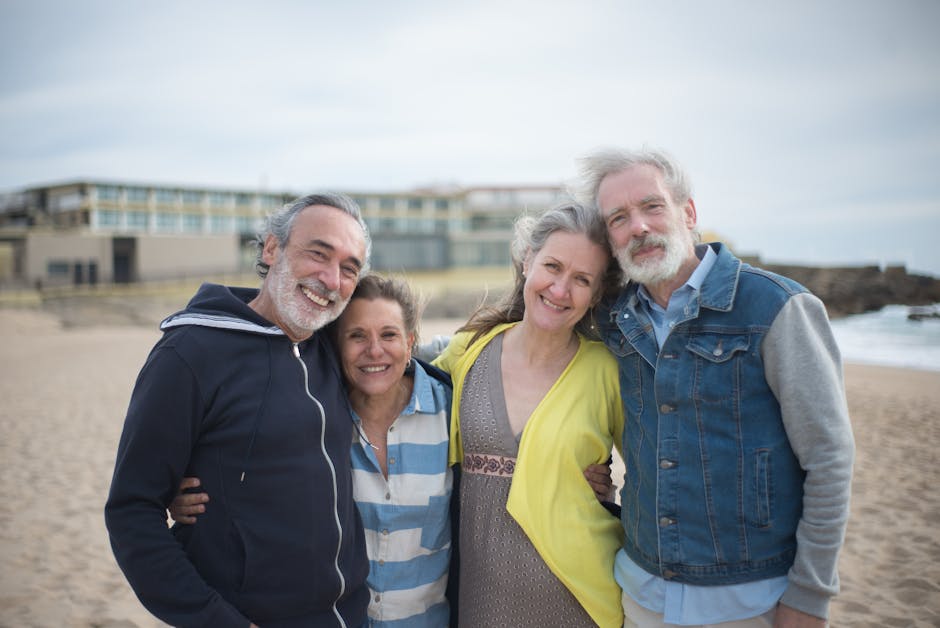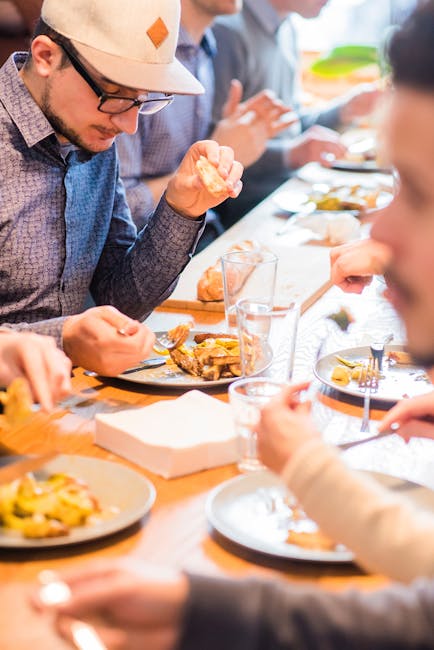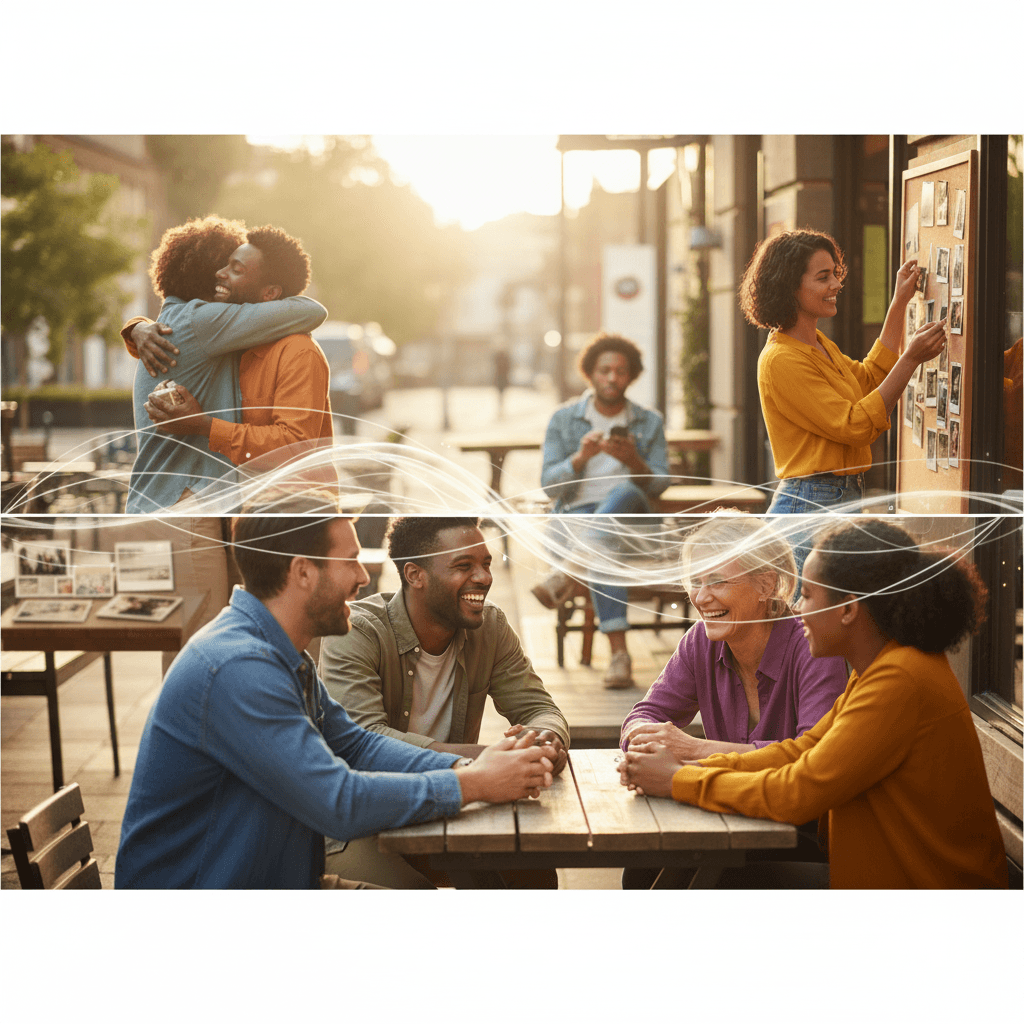Handling changes in your social circle can feel like navigating a maze blindfolded. One moment, you’re surrounded by familiar faces, and the next, you’re wondering where everyone went. It’s a natural part of life, but that doesn’t make it any less challenging. Whether it’s due to a move, a breakup, or simply growing apart, adjusting to these shifts can be tough. But don’t worry—there are ways to manage these changes and even thrive through them.
Keep reading to discover how you can process these transitions, build new connections, and maintain healthy relationships, all while staying true to yourself.
Key Takeaways
- Social circles often change due to life events, personal growth, or shifting priorities.
- Coping with friendship loss involves acceptance, emotional processing, and closure.
- Building new connections and maintaining healthy friendships require effort and openness.
- Communication and boundaries are essential during social transitions.
- Embracing change can lead to personal growth and stronger relationships.
Understanding Changes in Your Social Circle
Common Reasons for Changes in Social Circles
Friendships evolve for many reasons. Sometimes, it’s as simple as life pulling people in different directions.
You might move to a new city, start a demanding job, or enter a new phase of life like parenthood. These changes can naturally create distance between you and your old friends.
Other times, differences in values, interests, or priorities can cause relationships to drift apart. And let’s not forget the impact of major life events like divorce or loss, which can shake up your social world entirely.
Recognizing the Emotional Impact of Social Shifts
Losing friends or feeling disconnected can stir up a cocktail of emotions—sadness, loneliness, even anger.
It’s okay to grieve the loss of a friendship. After all, these relationships often hold memories, shared experiences, and a sense of belonging.
Acknowledging your feelings is the first step toward healing. Ignoring them is like trying to patch a leaky boat with duct tape—it might hold for a while, but eventually, it’ll sink.
The Role of Life Events in Altering Friendships
Life events, both big and small, play a significant role in reshaping your social circle.
For instance, a divorce can lead to unexpected shifts in friendships as people take sides or struggle to relate to your new reality. If you’re navigating this, you might find this resource on divorce and friendship helpful.
Similarly, relocating for work or family can make it harder to maintain old connections while opening the door to new ones.

Coping with Loss and Grief in Friendships
Accepting the End of Certain Relationships
Not all friendships are meant to last forever, and that’s okay.
Some people are in your life for a season, and their departure doesn’t diminish the value they brought during that time. Accepting this can help you let go with grace instead of clinging to something that no longer serves you.
Strategies for Processing Emotions
Journaling, talking to a trusted friend, or even seeking therapy can help you process the emotions tied to friendship loss.
It’s also important to focus on self-care. Whether it’s taking a walk, diving into a good book, or trying a new hobby, these activities can help you heal and rediscover joy.
Finding Closure and Moving Forward
Closure doesn’t always come from a heart-to-heart conversation. Sometimes, it’s a quiet acceptance within yourself.
Reflect on what you’ve learned from the friendship and how it’s shaped you. Then, focus on the future and the new connections waiting to be made.

Communication and Setting Boundaries
Navigating Relationships with Mutual Friends
When friendships end, mutual friends can feel like they’re caught in the middle.
Be mindful of their feelings and avoid putting them in awkward situations. Open communication can go a long way in maintaining these relationships.
Establishing Healthy Boundaries During Transitions
Boundaries are like the guardrails on a winding road—they keep things from going off track.
Whether it’s limiting how much you share with an ex-friend or setting expectations with new acquaintances, boundaries help protect your emotional well-being.
Maintaining Respect and Understanding in Conversations
Even if a friendship ends on bad terms, strive to remain respectful.
Gossiping or badmouthing others only adds negativity to your life. Instead, focus on fostering kindness and understanding, even when it’s difficult.

Building and Expanding Your Social Circle
Making New Friends After Significant Life Changes
Starting fresh can feel intimidating, but it’s also an opportunity to meet people who align with your current values and interests.
Joining Social Groups or Communities
Look for local clubs, classes, or volunteer opportunities where you can meet like-minded individuals.
Online communities can also be a great way to connect, especially if you’ve recently moved or are navigating a major life change.
Leveraging Hobbies and Interests to Meet New People
Your passions can be a bridge to new friendships.
Whether it’s joining a book club, taking a cooking class, or participating in a sports league, shared interests create a natural foundation for connection.
Developing Deeper Connections with New Acquaintances
Building meaningful relationships takes time and effort.
Be open, show genuine interest in others, and don’t be afraid to be vulnerable. These qualities can help turn casual acquaintances into lifelong friends.
Reconnecting with Old Friends
Sometimes, the best way to expand your social circle is to revisit old connections.
Reach out to a friend you’ve lost touch with. A simple message or call can rekindle a relationship and bring unexpected joy.

Maintaining Healthy Friendships
Nurturing Positive and Supportive Relationships
Friendships thrive on mutual effort and respect.
Show appreciation, be there during tough times, and celebrate each other’s successes. These small acts can strengthen your bonds.
Balancing Time and Energy Among Friends
It’s easy to overcommit, but spreading yourself too thin can lead to burnout.
Prioritize the relationships that matter most and make time for them, even if it’s just a quick coffee or phone call.
Recognizing and Addressing Toxic Dynamics
Not all friendships are healthy.
If a relationship consistently drains you or makes you feel bad about yourself, it might be time to reevaluate. For more tips on handling difficult friendships, check out this guide.

Navigating Social Situations During Transitions
Handling Awkward Encounters with Former Friends
Running into an ex-friend can feel like stepping on a Lego—unexpected and painful.
Keep interactions polite but brief, and don’t feel obligated to dive into deep conversations.
Managing Group Dynamics in Shared Social Spaces
If you share mutual friends, group events can be tricky.
Focus on enjoying the moment and avoid stirring up drama. Remember, you’re there to have fun, not to rehash old issues.
Approaching Social Events with Confidence
Walking into a room full of strangers can be nerve-wracking, but confidence is key.
Smile, make eye contact, and remember that everyone feels a little awkward sometimes. You’ve got this!
Understanding the Impact of Major Life Events on Friendships
How Divorce, Relocation, or Career Changes Affect Social Circles
Major life events can act like a magnifying glass, highlighting the strengths and weaknesses in your friendships.
For example, a divorce might reveal who your true friends are, while a career change could introduce you to a whole new network.
Adapting to Shifts in Priorities and Interests
As you grow, your priorities and interests may change, and that’s okay.
Embrace these shifts as opportunities to align your social circle with your current self.
Supporting Friends Through Their Own Life Changes
Friendship is a two-way street.
Be there for your friends during their transitions, just as you’d want them to be there for you.

Addressing Negative Social Interactions
Dealing with Bullying or Cyberbullying
Negative interactions, whether in person or online, can take a toll on your mental health.
Stand up for yourself, seek support, and don’t hesitate to block or distance yourself from toxic individuals.
Creating a Safe and Supportive Social Environment
Surround yourself with people who uplift and inspire you.
A positive social environment can make all the difference in your overall well-being.
Seeking Help or Intervention When Necessary
If a situation becomes overwhelming, don’t hesitate to seek help.
Whether it’s talking to a trusted friend, joining a support group, or consulting a professional, help is always available.
Empowering Yourself in Social Dynamics
Knowing Your Rights in Social Interactions
You have the right to set boundaries, say no, and prioritize your well-being.
Don’t let anyone make you feel guilty for protecting your peace.
Building Self-Confidence in Forming and Maintaining Relationships
Confidence is like a muscle—the more you use it, the stronger it gets.
Practice self-love and remind yourself of your worth. You deserve meaningful, fulfilling relationships.
Embracing Change as an Opportunity for Growth
Change can be scary, but it’s also a chance to grow.
Every shift in your social circle is an opportunity to learn, adapt, and become a better version of yourself.
Preparing for Future Changes in Your Social Circle
Anticipating and Accepting Inevitable Shifts
Friendships will come and go, and that’s a natural part of life.
Anticipating these changes can help you approach them with grace and resilience.
Building Resilience for Future Transitions
Resilience is your secret weapon for navigating social changes.
Focus on self-care, stay open to new experiences, and remember that you’re stronger than you think.
Fostering a Mindset of Adaptability and Openness
An open mind is like a parachute—it works best when it’s open.
Embrace new people, experiences, and opportunities with curiosity and optimism.
Handling changes in your social circle isn’t always easy, but it’s a journey worth taking.
For more insights on navigating friendships through life’s ups and downs, check out this guide.
Remember, every ending is a new beginning, and your next great friendship could be just around the corner.
Navigating Changes in Your Social Circle: An FAQ to Help You Adapt and Thrive
Why do social circles change over time?
Social circles often change due to life transitions such as moving to a new city, starting a new job, or personal growth. These shifts can naturally lead to drifting apart from some friends while forming connections with new people who align better with your current stage of life.
How can I cope with feelings of loss when friendships fade?
It’s normal to feel a sense of loss when friendships fade. Acknowledge your emotions and reflect on the positive memories you shared. Remember, change is a natural part of life, and letting go can create space for new, meaningful relationships.
What steps can I take to maintain old friendships during changes?
To maintain old friendships, prioritize communication. Schedule regular check-ins, whether through calls, video chats, or in-person visits. Even small gestures, like sending a thoughtful message, can help keep the connection alive despite life changes.
How can I build new connections when my social circle changes?
Building new connections requires openness and effort. Join social groups, attend community events, or participate in hobbies you enjoy. Being approachable and showing genuine interest in others can help you form meaningful relationships over time.
What if I feel lonely during a transition in my social circle?
Feeling lonely is common during transitions. Focus on self-care and engage in activities that bring you joy. Consider reaching out to support groups or seeking professional guidance if loneliness persists. Remember, building a new social circle takes time and patience.
How do I handle conflicts when changes in my social circle create tension?
Address conflicts with honesty and empathy. Communicate your feelings calmly and listen to the other person’s perspective. Sometimes, resolving tension requires compromise or accepting that the relationship may need to evolve or end.
Is it okay to outgrow friendships as I change and grow personally?
Yes, it’s natural to outgrow friendships as you evolve. Personal growth often leads to shifts in values and priorities, which may no longer align with certain friendships. It’s okay to cherish the memories while embracing new connections that resonate with your current self.
How can I balance old and new friendships effectively?
Balancing old and new friendships requires time management and clear priorities. Make an effort to nurture both by setting aside time for each group. Be transparent about your availability and ensure that your actions reflect your commitment to maintaining meaningful relationships.
What role does self-reflection play in handling changes in my social circle?
Self-reflection helps you understand your needs and values during transitions. By evaluating what you seek in relationships, you can make intentional choices about who to invest your time and energy in, fostering a more fulfilling social circle.
How can I embrace change in my social circle without fear or resistance?
Embracing change starts with a positive mindset. View transitions as opportunities for growth and new experiences. Practice gratitude for past connections while staying open to the possibilities that new relationships can bring into your life.



